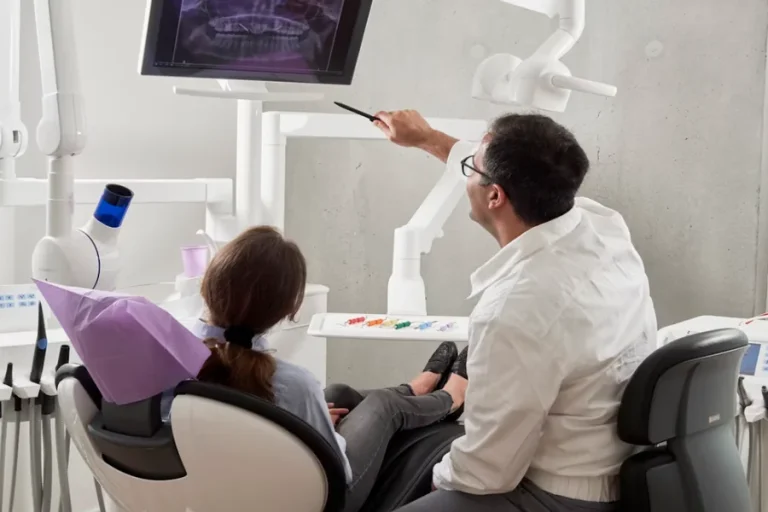Are Dental Implants Right for You? Here’s What to Know

Losing a tooth is never just about the tooth. It changes the way you eat, talk, smile, and in some cases, how you feel about yourself. A missing tooth (or several) can impact everything from your confidence to your health, and if you’ve been looking into solutions, dental implants probably came up pretty quickly. They’re often talked about as the gold standard, but are they really right for you?
Before you jump in, it’s worth understanding what implants involve, who they’re best for, and what kind of experience you’re signing up for. Like anything else in healthcare, it’s not one-size-fits-all. This isn’t a sales pitch, it’s a straightforward breakdown to help you figure out if implants actually make sense for your situation.
What Exactly Are Dental Implants?
Let’s start simple. A dental implant is basically a titanium screw that gets placed in your jawbone where the root of your tooth used to be. Over time, the bone grows around it, locking it in place. After that heals, a crown (the visible part of your tooth) gets attached to the top.
It sounds kind of intense, and in some ways, it is, but it’s also a very well-established procedure that’s helped millions of people get back a normal smile and chewing function.
Not Everyone Is a Candidate, and That’s Okay
While dental implants work really well for a lot of people, they’re not a good fit for everyone. You’ll need to have enough healthy jawbone to support the implant, and your gums should be in good shape too.
If you’ve been missing a tooth for a while, bone loss might’ve already started. But that doesn’t necessarily mean you’re out of luck. Sometimes a bone graft can rebuild the area enough to place the implant later.
Certain health conditions, like uncontrolled diabetes or immune system issues, can slow healing, which makes implants a bit riskier. Heavy smokers might face similar complications. But don’t make assumptions based on a checklist. It’s worth having a real conversation with a dentist who does this kind of work regularly.
Implants vs. Bridges vs. Dentures: What’s the Difference?
When you’re missing teeth, you’ve got a few options. The one that’s “best” really depends on what matters most to you, cost, longevity, how natural it feels, or how quickly you want it done.
- Bridges: These are often used to fill small gaps, but they rely on the neighboring teeth to stay in place. The catch is that those healthy teeth usually need to be shaved down to make it work.
- Dentures: Removable and usually more affordable, but they can move around, feel awkward, and need to be replaced or adjusted every few years.
- Implants: They don’t mess with your other teeth and don’t need to come out. Once they’re in, they feel like part of your own mouth.
A lot of people end up choosing implants after they’ve already tried bridges or dentures and weren’t satisfied. Practices like Fixed Dental Implants often see patients who are ready for something more permanent and stable after dealing with the hassle of other solutions.
Your Jawbone Actually Plays a Huge Role
Here’s something people don’t often think about: your jawbone doesn’t just hold your teeth. It also keeps your face shape intact. When you lose a tooth, the bone underneath can start to shrink because it’s not being used anymore.
That’s where implants help a lot. They stimulate the bone just like a real tooth root would. But if you’ve had a missing tooth for years and the bone has already faded, you may need a graft to build it back up before the implant can go in. It adds time, but it’s doable.
The Timeline Can Be Longer Than You’d Expect
A lot of folks think getting a dental implant is like getting a crown, it’s not. This is more of a process. After the implant post is placed in your jaw, your body needs time to heal and let the bone grow around it. That can take anywhere from three to six months, depending on your situation.
Only after that healing period can the crown (the visible tooth) be placed. So yeah, you’ll be living with a gap or a temporary tooth for a while. But most people who’ve gone through it say it was worth the wait.
Keeping It Clean Is Still a Must
Just because your implant isn’t a natural tooth doesn’t mean you can skip brushing. You still have to take care of your gums and the implant site. Infection around an implant, called peri-implantitis, is real, and it can cause the whole thing to fail if ignored.
The good news? A normal brushing and flossing routine, plus regular dental checkups, is usually enough to keep things in good shape.
Let’s Talk About Cost (Because It’s Not Cheap)
Here’s the part that usually gives people pause. A single dental implant can run you anywhere from $3,000 to $5,000 in many areas. And that doesn’t include things like bone grafts or extractions if you need them.
But before you rule it out, think long-term. Dentures and bridges often need to be replaced every few years. Implants, when done right and taken care of, can last decades, sometimes the rest of your life.
If you’re budgeting for dental work anyway, it’s worth weighing the upfront cost against the long-term maintenance of cheaper options.
Confidence, Chewing, and Everyday Life
One thing people don’t always think about is how much a missing tooth affects your day-to-day life. You might start chewing on just one side. Or avoid certain foods altogether. Or stop smiling in photos because of a visible gap.
Getting a dental implant can quietly change all that. It’s not about vanity, it’s about feeling normal again. Eating what you want. Laughing without covering your mouth. Having conversations without worrying about a denture slipping out of place. These little things add up fast.
Are There Risks? Sure. But They’re Manageable
Any procedure that involves surgery carries some risk, and dental implants are no different. Infection, nerve damage, or implant failure are all possibilities, but they’re relatively rare, especially when you’re working with someone experienced.
Success rates for dental implants are usually above 95 percent. But that’s assuming you’re a good candidate and you follow the aftercare instructions properly.
So, Are Implants the Right Call for You?
At the end of the day, the answer depends on you. Some people are ready and excited about implants. Others need time, more information, or just a little help getting their mouth healthy enough to qualify.
That’s totally okay. A good dentist won’t pressure you either way, they’ll help you figure out what makes the most sense based on your goals, your health, and your lifestyle. Implants aren’t just about filling a gap in your mouth. They’re about fixing something that’s been missing for a while, maybe even longer than you realized.
Final Thoughts
Dental implants are a big step, no doubt about it. But for a lot of people, they’re also a turning point, something that helps them get their smile, confidence, and freedom back. If you’ve been thinking about it, start with a conversation. See what’s possible.
You might find that the thing you’ve been putting off could actually be the thing that makes a real difference in your everyday life.



![The Best Way to Buy Modvigil Online in 2025 [No Rx & Best Price]](https://netizensreport.com/wp-content/uploads/2025/09/The-Best-Way-to-Buy-Modvigil-Online-in-2025-No-Rx-Best-Price-768x512.webp)